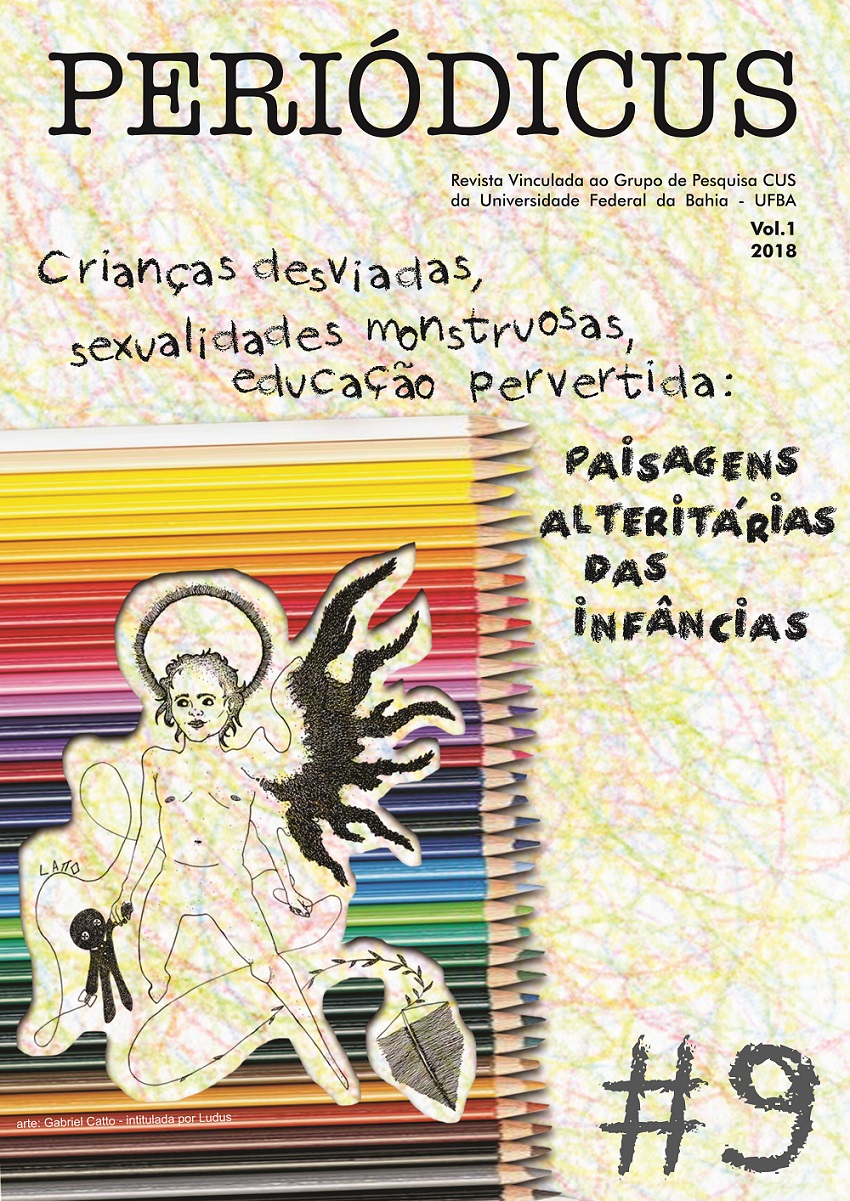Segurança pública e violência simbólica: as identidades trans entre o reconhecimento e a (in)visibilidade
DOI:
https://doi.org/10.9771/peri.v1i9.8916Keywords:
identidades trans, reconhecimento, segurança pública, interseccionalidades.Abstract
O presente artigo, fruto de pesquisa acadêmica[1], visa problematizar como vem sendo apreendidas as noções de identidade trans a partir das instituições de segurança pública e pelo movimento social de travestis e transexuais do município de Porto Alegre – desenvolvendo, para tanto, uma análise mais específica acerca de como opera o sistema binário de sexo/gênero em relação à interpretação de corpos trans.Sob a perspectiva da teoria queer, procura-se compreender de que forma as identidades trans passam ou não a ser reconhecidas mediante sua menor ou maior proximidade em relação às normas e aos padrões do sistema binário de sexo/gênero, o qual se articula com categorias de classe social e de raça/etnia para o aprofundamento de desigualdades já existentes.
[1] O estudo foi realizado com apoio da Fundação de Amparo à Pesquisa do Rio Grande do Sul.
Downloads
Downloads
Published
How to Cite
Issue
Section
License
Copyright (c) 2018 Revista Periódicus

This work is licensed under a Creative Commons Attribution-NonCommercial 4.0 International License.
Authors who publish in this journal agree to the following terms:
Authors retain copyright and grant the journal the right of first publication, with the work simultaneously licensed under a Creative Commons Attribution Noncommercial License that allows the work to be shared with acknowledgment of authorship and initial publication in this journal, but prohibits commercial use.
Authors are authorized to enter into separate additional contracts for non-exclusive distribution of the version of the work published in this journal (e.g., publishing in an institutional repository or as a book chapter), with acknowledgment of authorship and initial publication in this journal.
Authors are permitted and encouraged to publish and distribute their work online (e.g., in institutional repositories or on their personal website) at any point before or during the editorial process, as this can generate productive changes and increase the impact and citation of the published work (see The Effect of Open Access).








